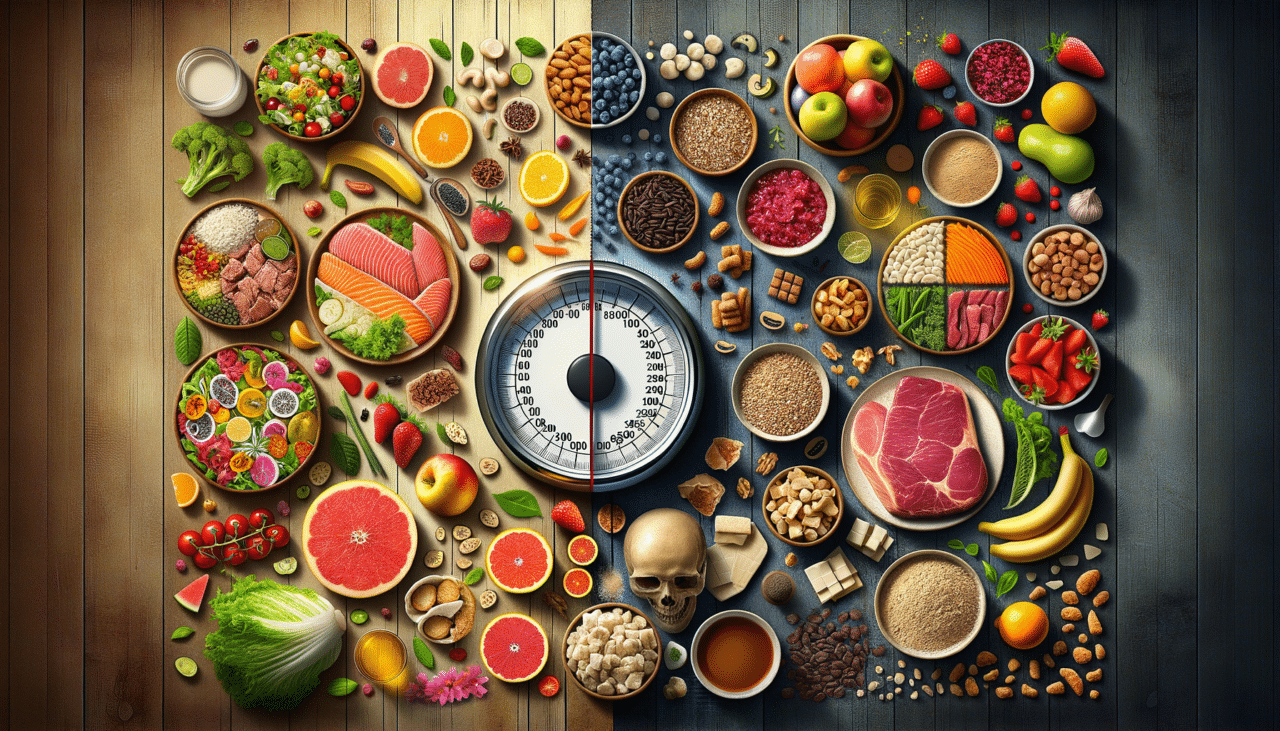In the quest for optimal health and fitness, choosing the right diet plan can be a daunting task. Two popular dietary approaches are the Low-Calorie Diet and the Macronutrient-Based Diet. Each has its unique methodology and benefits, making them suitable for different individuals based on their health goals and lifestyle preferences. In this article, we’ll delve into the main features of each diet, compare them comprehensively, and help you decide which might be the best fit for you.
Understanding the Diets
Low-Calorie Diet
A low-calorie diet primarily focuses on reducing the number of calories consumed daily. It aims to create a calorie deficit, meaning you burn more calories than you consume, which can lead to weight loss. This diet typically involves:
- Caloric Restriction: Limiting daily caloric intake, usually between 1,200 to 1,500 calories for women and 1,500 to 1,800 calories for men.
- Portion Control: Emphasizing the importance of portion sizes to manage calorie intake.
- Balanced Nutrition: Encouraging the consumption of nutrient-dense foods like fruits, vegetables, lean proteins, and whole grains.
- Simplicity: Easy to follow without the need for complex calculations or tracking.
Macronutrient-Based Diet
The macronutrient-based diet focuses on balancing the intake of the three macronutrients: carbohydrates, proteins, and fats. Rather than just counting calories, this diet involves:
- Macronutrient Ratios: Customizing the diet plan to specific ratios of carbs, proteins, and fats, often tailored to individual goals like muscle gain or fat loss.
- Nutrient Timing: Considering the timing of meals to optimize energy levels and performance, particularly important for athletes.
- Personalization: Offering flexibility to adjust macronutrient intake based on personal preferences and dietary needs.
- Tracking: Requires monitoring and recording macronutrient consumption, often using apps or food journals.
Comparative Table
Below is a comparative table highlighting the main points of the Low-Calorie Diet and the Macronutrient-Based Diet:
| Feature | Low-Calorie Diet | Macronutrient-Based Diet |
|---|---|---|
| Primary Focus | Caloric intake reduction | Balancing macronutrients (carbs, proteins, fats) |
| Ease of Use | Simple and straightforward | Requires more tracking and calculations |
| Flexibility | Less flexible, standardized calorie limits | Highly customizable to personal goals and preferences |
| Suitable For | Individuals seeking straightforward weight loss | Those interested in muscle building or specific health goals |
| Nutritional Balance | Focuses on nutrient-dense foods | Ensures balance of macronutrients |
| Meal Planning | Emphasizes portion control and calorie counting | Involves planning meals around macronutrient targets |
| Sustainability | Can be challenging long-term due to caloric restrictions | Potentially more sustainable with personalized adjustments |
| Potential Benefits | Effective for initial weight loss | Supports muscle gain, fat loss, and energy optimization |
| Challenges | May lead to nutrient deficiencies if not carefully planned | Requires diligent tracking and can be time-consuming |
Characteristics of Each Diet
Low-Calorie Diet Characteristics
- Caloric Restriction: The cornerstone of this diet is reducing daily caloric intake to promote weight loss.
- Simple Implementation: Relies on basic principles of portion control and calorie counting, making it accessible to beginners.
- Emphasis on Whole Foods: Encourages the consumption of whole, nutrient-dense foods to maximize nutrition in fewer calories.
- Potential for Rapid Weight Loss: Often results in quick weight loss, particularly beneficial for those needing to shed pounds quickly for health reasons.
- Risk of Nutrient Deficiency: If not carefully planned, there is a risk of missing out on essential nutrients due to calorie constraints.
Macronutrient-Based Diet Characteristics
- Focus on Nutrient Ratios: Prioritizes achieving specific macronutrient ratios tailored to individual goals.
- Flexibility and Personalization: Allows for customization based on dietary preferences, fitness goals, and lifestyle.
- Enhanced Performance: Particularly beneficial for athletes or those engaged in intense physical activity, optimizing energy and recovery.
- Potential for Muscle Gain: Supports muscle building through adequate protein intake and balanced nutrition.
- Complexity in Tracking: Requires careful tracking of macronutrient intake, which can be time-consuming and may require the use of apps or

Comments (0)
There are no comments here yet, you can be the first!